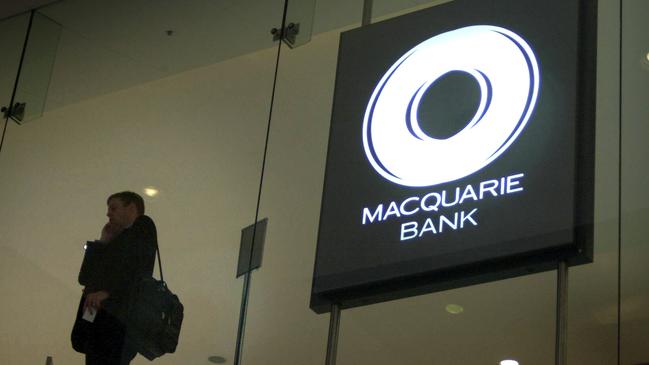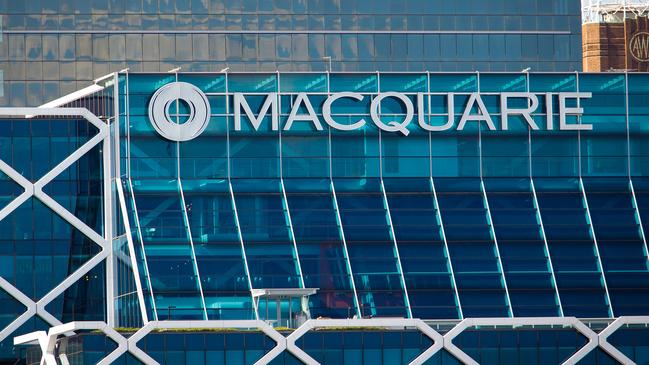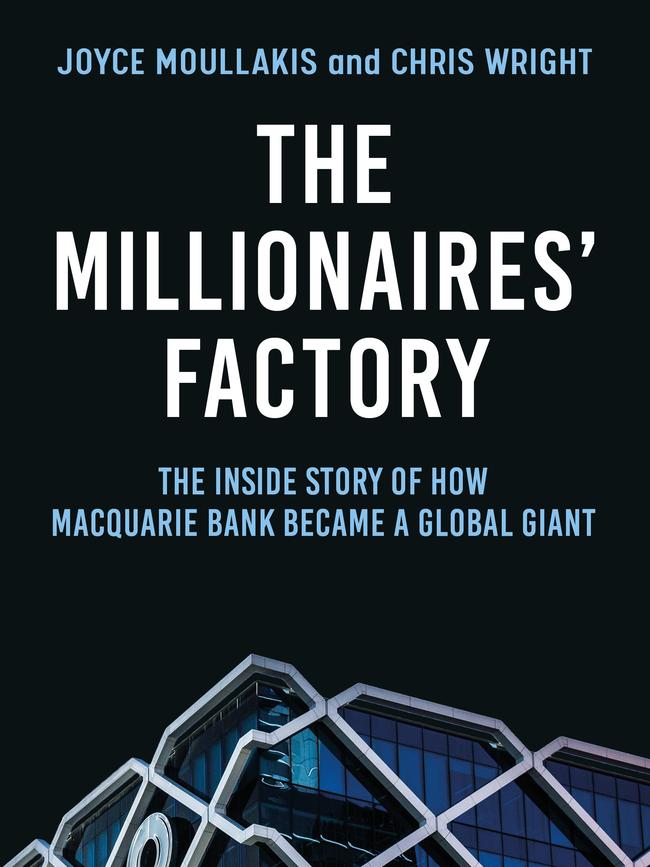Secrets to excess: Macquarie banking boys’ club exposed
A work hard, party-hard culture permeated through parts of Macquarie Group in the lead-up to the global financial crisis, including bumper pay packets, strip club visits and office sex.

A work hard, party-hard culture permeated through parts of Macquarie Group in the lead-up to the global financial crisis, including bumper pay packets, strip club visits and office sex.
Former employees, who spoke to the authors of a soon-to-be released book about Macquarie, recalled the extreme working hours in the boom years leading up to the GFC. Alongside that came turbocharged spending and partying.
“Nothing comes even remotely close to how hard they used to work and how hard they used to party at Macquarie,” said a former research unit employee, who declined to be named. They remember standard working hours being 7am to 7pm, but it was not uncommon for staff to work 7am to 11pm.

Another former Macquarie employee recalls the blokey culture at the time.
“It was an open secret that they’d go to Men’s Gallery, the strip club across the road from work, for lunch every Wednesday,” she said. “I don’t think any of the men, or heads of department, gave a thought to the women’s position.”
Others reported that Macquarie’s security guards would regale people with tales of what they’d seen around the office: people having sex in the shower or under their desks.
“When a new associate came in, bankers would give them three months, the typical time it would take to break or make them,” another former employee said.
Macquarie declined to comment.
Those observations were, though, not unique to Macquarie at the time as the investment banking industry in 2006-07 was thriving on rampant takeover activity locally and globally. Banking and capital markets firms are littered with examples of bad behaviour and cultural problems, which were somewhat reined in during the GFC’s fallout.
The Hayne banking royal commission also ensured the sector had to clean up its act on governance and ensuring executives and staff were held accountable for their actions.
ANZ was entangled in its own cultural scandal, which came to light in 2015, including allegations within the bank’s markets team of drug-taking, lewd language and at times conducting meetings at strip clubs.
AMP endured cultural issues in 2020 after it promoted Boe Pahari, the subject of a sexual harassment complaint, to an executive role. He is no longer with the company. That came in the same year that saw the exit of AMP executive Alex Wade after inappropriate photos were sent to an employee.
Last year, National Australia Bank rejected allegations from its former head of repo trading that she was harassed and bullied. The Federal Court legal action is ongoing.
Jarden was in 2022 forced to commission an independent review after workplace complaints.
Macquarie was dubbed the Millionaires’ Factory in the decade before the GFC, given the group’s multimillion-dollar pay packets. The pre-crisis peak saw then chief executive Allan Moss rake in $33.5m, while lieutenant Nicholas Moore earned $32.9m.

Mr Moss, told the authors, remuneration was closely tied to performance.
“It wasn’t like these guys had inherited the business from somebody who’d retired. Nicholas Moore built the infrastructure business. Andrew Downe built the commodities business,” he said. “In that context, these bonuses were appropriate.”
Former Macquarie chairman Kevin McCann said its remuneration model had always included a deferral element, ahead of the prudential regulator’s banking accountability regime being imposed. “Even before regulators required it, Macquarie deferred payment from the profit pool and required it to be invested in Macquarie shares,” he added.
Asked about irritation at Macquarie that their salaries had to be disclosed, former Treasurer Peter Costello told the book: “I said, yeah, well I don‘t like the disclosure laws either, because my salary gets disclosed too. But unlike you it embarrasses me because it’s so small.”
In 2022, Macquarie reported a record annual profit and salaries were again a talking point. CEO Shemara Wikramanayake’s awarded annual pay was $25.8m, while the head of the commodities and markets arm Nick O’Kane had a bigger payday at $36.2m.
The Millionaires’ Factory by Joyce Moullakis and Chris Wright is out on Tuesday, February 28






To join the conversation, please log in. Don't have an account? Register
Join the conversation, you are commenting as Logout